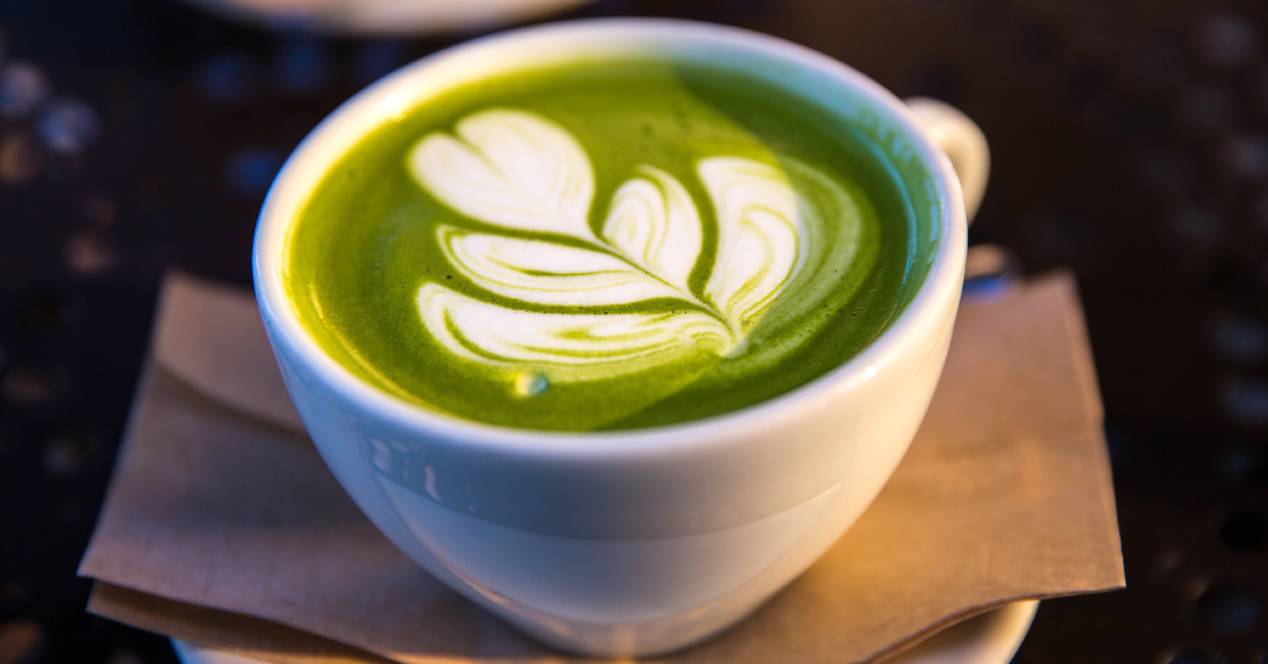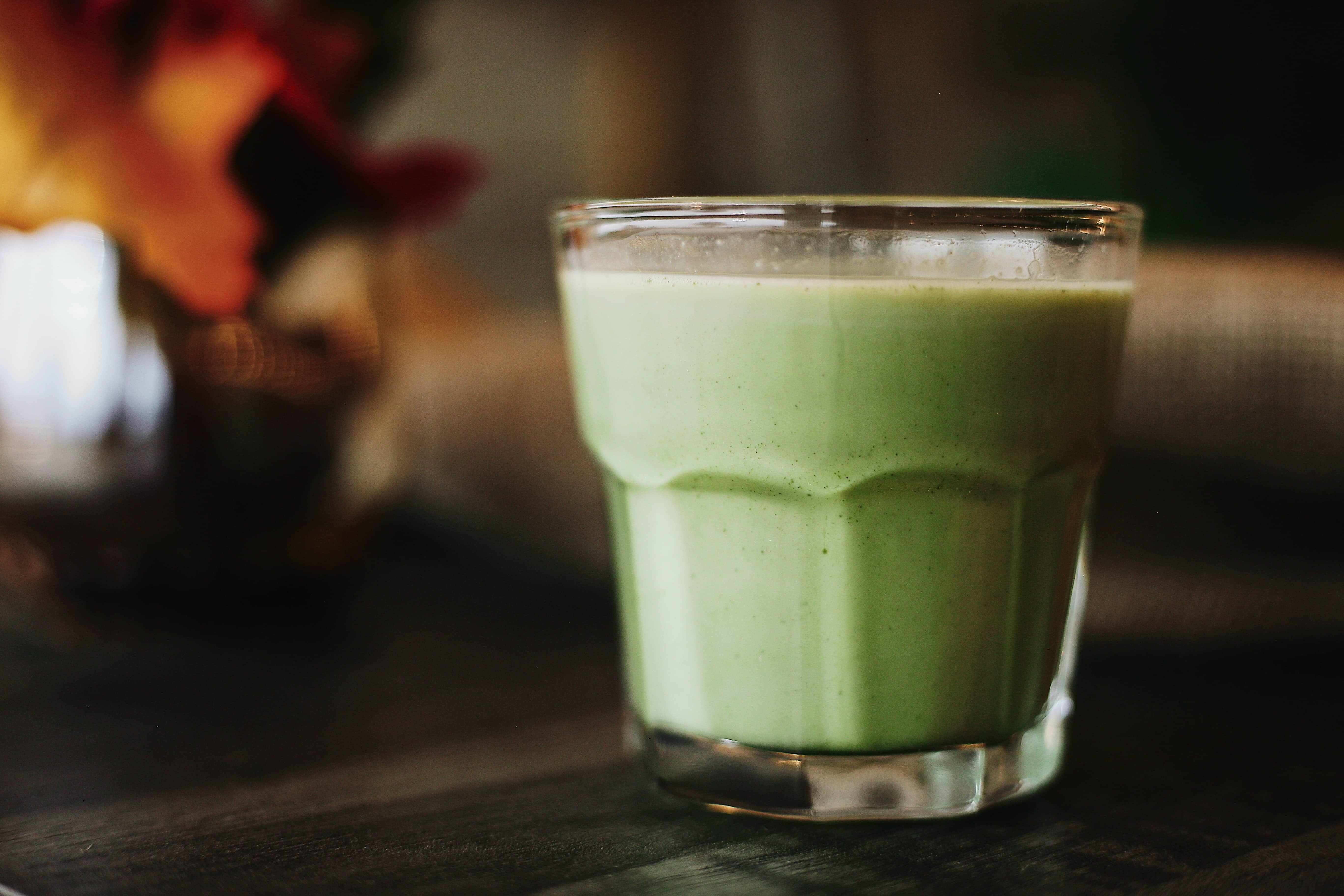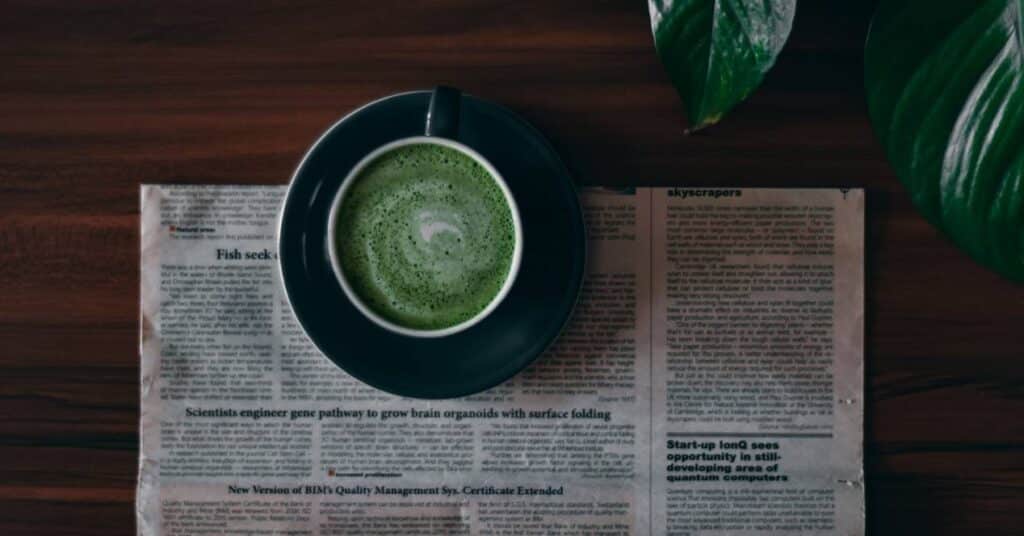
Tea consumption has skyrocketed in recent years, with green tea being one of the most demanded for its beneficial properties for fat loss. Matcha tea is included in the powdered green range and has numerous health benefits. There are people who consume it as an infusion, while others incorporate it into cocktails or pastries.
Matcha tea has become extremely popular of late with teas, lattes, and even desserts showing up at every local coffee shop. The tea comes from the Camellia sinensis plant, similar to green tea, but grown differently to produce a unique nutritional profile.
What is it?
Although everyone thinks that it has Japanese origin, it really comes from China. Around the year 900, there were large numbers of Japanese who immigrated to China to learn a form of Buddhism. Buddhist monks had discovered this type of tea many years ago, which helped keep the mind awake while relaxing the body for meditation. Therefore, many Japanese adopted this habit and are thought to be the creators.
Most teas come in loose leaves, but matcha tea is characterized by its leaves being ground into a very fine powder. Therefore, to consume it, it is necessary to mix it with water or milk.
Matcha is grown differently than regular green tea. Tea bushes are protected from sunlight for 20 to 30 days before harvest. Shade causes an increase in chlorophyll levels, which makes the leaves turn a darker green tone and increases the production of amino acids. After harvesting, the stems and leaf veins are removed. They are then stone-ground into a fine, bright green powder known as matcha.
Because all of the leaf powder is ingested, matcha contains more of some substances, such as caffeine and antioxidants, than green tea. A typical serving of standard matcha tea, made from 1/2 to 1 teaspoon of powder, typically contains around 70mg of caffeine. This is significantly higher than a cup of regular green tea, which provides 35mg of caffeine. The caffeine content also varies depending on how much powder we add.
Properties
Undoubtedly, this type of tea stands out for its large amount of vitamins, minerals and amino acids. Consuming its whole leaf provides many more nutrients, highlighting the antioxidant content (polyphenols and catechins). These are able to fight free radicals and prevent early cell aging.
Green tea is also said to have anti-cancer and fat-loss benefits. Being a natural drainer, it helps reduce fluid retention and eliminates excess toxins from the body. In addition, it has micronutrients such as zinc, selenium, magnesium or chromium.
The nutritional information of 100 grams of matcha green tea is:
- Energy: 0 calories
- Fat: 0 grams
- Sodium: 0 grams
- Carbohydrates: 0 grams
- Fiber: 0 grams
- Sugar: 0 grams
- Protein: 0 grams
Matcha tea is not a significant source of carbohydrates, fat, protein, or micronutrients. All of these can be added depending on how the matcha is prepared; For example, matcha lattes often contain fat and carbohydrates from milk and added sugars.

Services
Powdered matcha tea contains a number of health benefits, including its anti-cancer properties and its potential to boost heart health and improve brain function.
High in antioxidants
Matcha tea is rich in catechins, a class of plant compounds in tea that act as natural antioxidants. Antioxidants help stabilize harmful free radicals, which are compounds that can damage cells and cause chronic disease.
When we add matcha powder to hot water to make tea, the tea contains all the nutrients of the whole leaf. We will tend to have more catechins and antioxidants than just steeping green tea leaves in water. In fact, by one estimate, the amount of certain catechins in matcha is up to 137 times higher than in other types of green tea.
Protects the liver
The liver is vital to health and plays a central role in toxin removal, drug metabolism, and nutrient processing. Some studies have found that matcha may help protect liver health.
One study gave matcha tea to diabetic rodents for 16 weeks and found that it helped prevent both kidney and liver damage. Another study gave 80 people with nonalcoholic fatty liver disease either a placebo or 500 mg of green tea extract daily for 90 days. After 12 weeks, the green tea extract significantly reduced liver enzyme levels. Elevated levels of these enzymes are a marker of liver damage.
However, it is important to remember that there may be other factors involved in this association. More research is needed to look at the effects of matcha tea in the general population, as most research is limited to studies examining the effects of green tea extract on animals.
Helps lose weight
Green tea is well known for its ability to enhance weight loss. In fact, studies show that it can help boost metabolism to increase energy expenditure and increase fat burning.
One small study showed that taking green tea extract during moderate exercise increased fat burning by 17%. Another study in 14 people found that taking a supplement containing green tea extract significantly increased 24-hour energy expenditure , compared to a placebo.
Although most of these studies focused on green tea extract, matcha comes from the same plant and should have the same effect.
Improves brain function
Some research shows that several of matcha's components may help improve brain function. Researchers find that matcha tea causes improvements in attention, reaction time, and memory, compared to placebo.
Another small study showed that consuming 2 grams of powdered green tea daily for 2 months helped improve brain function in older people. Additionally, matcha contains a more concentrated amount of caffeine than green tea, with 35mg of caffeine per half teaspoon (about 1 gram) of matcha powder.
Matcha also contains a compound called L-theanine, It alters the effects of caffeine, promotes alertness, and helps prevent the drop in energy levels that can follow caffeine consumption. L-theanine has also been shown to increase alpha wave activity in the brain, which can help induce relaxation and lower stress levels.

How to prepare?
Taking advantage of matcha's many health benefits is simple, and the tea tastes delicious. You can make traditional matcha tea by sifting 1 to 2 teaspoons (2 to 4 grams) of matcha powder into a cup, adding 60ml of hot water, and mixing with a bamboo whisk.
We can also adjust the ratio of matcha powder to water based on our preferred consistency. For a weaker tea, reduce the powder to half a teaspoon (1 gram) and mix with 90-120ml of hot water. If we prefer a more concentrated version, we will combine 2 teaspoons (4 grams) of powder with only 30 ml of water.
As always, moderation is the key. Although matcha is packed with health benefits, more is not necessarily better. In fact, liver problems have been reported in some people who drank large amounts of green tea daily. Drinking matcha can also increase your exposure to contaminants like pesticides, chemicals, and even arsenic found in the soil where the tea plants are grown.
It is best to take 1 or 2 cups a day and look for certified organic varieties to take advantage of matcha's many health benefits without risking side effects.
Contraindications
Some side effects and risks are associated with consuming matcha.
Contaminants
By consuming matcha powder, we are actually ingesting the entire tea leaf, along with everything in it. Matcha leaves can harbor contaminants, including heavy metals, pesticides, and fluoride, from the soil in which the plant grows.
Using organic matcha tea can reduce the risk of pesticide exposure, but even organic leaves can still contain soil substances that are harmful when ingested in large amounts.
Hepatic and renal toxicity
Matcha tea contains approximately three times more antioxidants than high-quality regular green tea. As such, 2 cups of matcha tea can provide the same amounts of plant compounds as 20 cups of other green teas).
Although individual tolerance varies, consuming high levels of the plant compounds found in matcha can cause nausea and symptoms of liver or kidney toxicity. Some studies show symptoms of toxicity, others show possible protective effects.